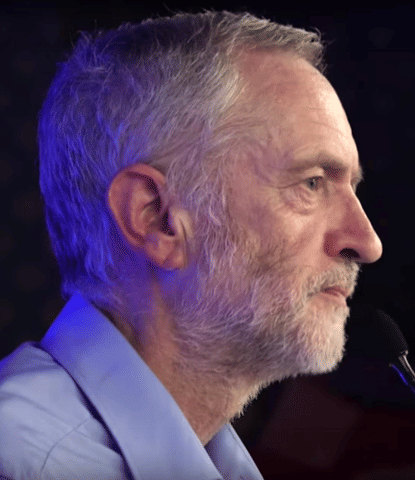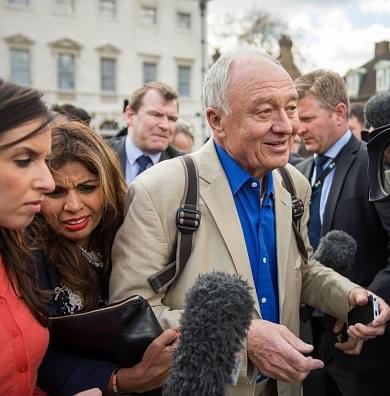World
Why Sadiq Khan’s Victory Is Nothing More Than An Empty Symbol
Adithya Reddy
May 17, 2016, 03:26 PM | Updated 03:26 PM IST
Save & read from anywhere!
Bookmark stories for easy access on any device or the Swarajya app.


It is not usual that a newly elected mayor of a foreign city should make more headlines for his views on American presidential candidates than for his local policy prescriptions; unless of course your name is Khan. After all, London’s recent mayoral election was fought less on how to improve the city’s living conditions than on Sadiq Khan’s religion. Sample this editorial in a prominent online daily-
So you might expect London’s acute housing crisis, creaking transport infrastructure, glaring inequalities and poverty all too have featured prominently in a bitterly fought contest for City Hall. No such thing. All we have heard about Labour’s Sadiq Khan are far-fetched stories about his “links” to terrorists or terror apologists …Khan’s probable success in the election on 5 May may or may not make living in London easier for many, but we have heard precious little about his policies to make a judgement..
It was not only Khan’s opponent Zac Goldsmith who raised the bogey of Islamism, David Cameron also weighed in with not-so subtle communal remarks.While the Tories may have tried to play on immigration fears within their conservative constituency Khan himself did not shy away from playing the Muslim card to attract London’s left-liberal elite. As early as July, 2015 he talked of the “phenomenal message” a Muslim mayor would send “about the confidence of our city” and “to the haters in Iraq and in Syria”.
One of his campaign leaflets called him the “the British Muslim who’ll take on the extremists”. Not surprisingly his victory was hailed not as providing hope for solving London’s housing crisis and transport problems but as “rebuke to extremists of all stripes, from Donald Trump to Abu Bakr Al-Baghdadi” and as “a celebration of multiculturalism.”
With only a brief stint as junior minister under Gordon Brown and electoral promises like a total freeze on transport fares without explaining how he will manage the finances, Khan’s credentials for becoming mayor were anything but spectacular. Could being the son of a Pakistani driver, a human rights lawyer or a supporter of gay marriages make up for this? To understand, one only needs to look at the changed complexion of the Labour party and its predominant position in London itself.
Jeremy Corbyn, the man who was chosen to lead the party after its second consecutive defeat in the 2015 general elections, was a typical anti-establishment candidate. A trade union leader and seven-time MP from Islington; he was officially the “most rebellious Labour MP” in three terms (he defied the party whip 428 times while it was in power!). He won the leadership election against three shadow cabinet ministers on the promise of steering his party away for the politics of the “New Left”- a politics that apparently led to the much-maligned “Blair Legacy”.

He stood for a more leftist, committed and intellectual form of socialism that appeared to attract new members to the party even while scaring away many existing ones. It is surprising however to note the kind of supporters Corbyn’s leadership is attracting. According to reports of a leaked internal party document “a disproportionate number of Labour members who have joined since the 2015 general election are high-status city dwellers pursuing well-paid jobs (and) the party is doing less well when it comes to attracting rural dwellers, elderly people and those struggling to make ends meet”.
This can only be explained by the fact that leftism has stopped appealing as a practical option to people it is supposed to make the most difference to and has instead turned into staple fodder for urban arm-chair politics. This politics, with its emphasis on diversity and social liberalism, cannot be the concern of those unsure of their financial future. It is not surprising therefore that much of the support for Corbyn and his policies comes from London- a city that has become a sort of leftist citadel.
Labour leaders in other parts of England appear concerned by this; especially about losing working class votes to the right-wing UK Independence Party. Lord Watts, a former leader of the Labour parliamentary party, spoke this in the House of Lords- “My advice to my own party leadership is that they should take less notice of the London-centric, hard-left political class who sit around in their £1m mansions, eating their croissants at breakfast and seeking to lay the foundations for a socialist revolution.” The most prominent leader of this London-centric group (and of the ‘old left’ within the Labour party), Ken Livingstone was only recently suspended from the party for calling a Hitler a ‘Zinoist’.

The party gained seats in London in the 2015 general elections despite losing almost losing everywhere else. It has won a succession of contests for the London assembly and local councils since 2012 with landslide margins. The Labour party in London, under the leadership of people like Livingstone, has made ‘diversity’ the centrepiece of its politics since 1980s’. Such a party was bound to benefit from the city’s population churn which has left 35 percent of its electorate “non-white.”
As a psephologist comments- “London has lots of university graduates on higher incomes who work in the private sector. Their economic self-interest should steer them to vote Tory. But they won’t, because the Tories are ‘evil’, ‘racist’. Meanwhile, it’s a badge of honour, voting Labour.” It is electorally difficult for any form of conservatism to survive in a society with so much indignation - howsoever superficial- against a common identity.
Khan is a product of this London-centric politics. The question remains as to whether it is desirable to vote for somebody to head a city’s administration with the predominant purpose of promoting diversity. The strongest justification for this is that such a leader will serve as a role model for other Muslim youth and steer them away from radicalism. While we will wait and watch how many British Muslims start supporting gay marriages and visiting Hindu temples like Khan does after he becomes Mayor, it doesn’t stand to reason that the serious criticism against multiculturalism in the whole of Europe should be answered through symbols.
If the concern on multiculturalism is that it permits immigrant cultures to remain antagonistic to the majority culture and yet enjoy the same protections, can an exception be shown as justification for its continuance only on the hope that there may be some assimilation in future that is inspired by such exceptions. On the contrary, symbols like Khan are used to justify unrestricted immigration and continued segregation in the name of tolerance.
This kind of tolerance undermines itself by cutting at its source. To make meaning of London’s tolerance the question to be asked is not whether it can have a Muslim mayor. It is what the conservative philosopher Roger Scruton asks- “The Muslim Next Door: Can we live with him? Can he live with us?” Until this is answered in the affirmative, Sadiq Khan will remain an empty symbol.
Adithya Reddy is a Chennai-based lawyer.




